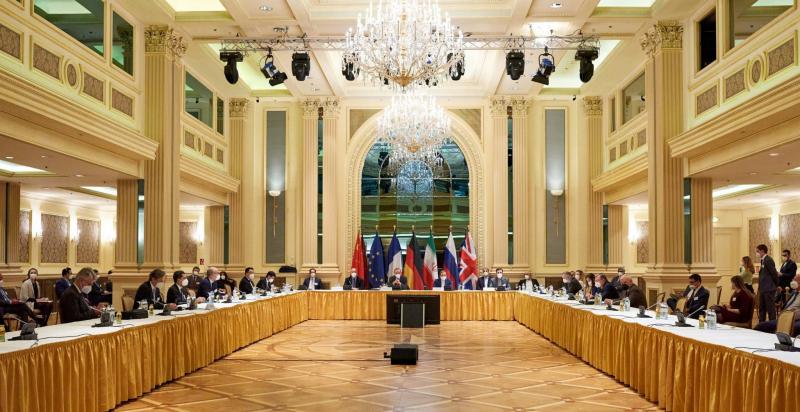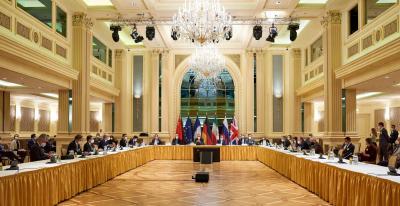Under the title "Alternative Plan Imposed Sanctions on Tehran Amidst Stalled Vienna Negotiations," the Arabic website reported that with the ongoing uncertainty regarding the timing of the anticipated seventh round of nuclear negotiations between the West and Iran, despite Washington recently confirming its readiness to participate indirectly in the stalled talks since June 20 as soon as they resume, some reports have begun to suggest a possible alternative plan in the event of a deadlock.
Western diplomats, according to the "Iran International" network, indicated that the countries involved in the nuclear agreement have started consulting on an alternative plan that could be implemented if the Vienna discussions end without an agreement. The sparse information regarding this matter pointed out that this plan may include the reimposition of lifted sanctions or the imposition of new sanctions on Iranian authorities.
**Significant Disagreements**
It is worth noting that several contentious issues remain unresolved, and negotiators in the Austrian capital have not reached a solution on them since April. This was affirmed by several European officials, including U.S. Secretary of State Antony Blinken, at the end of June. Blinken confirmed at that time that "his country’s delegation has conducted six rounds of discussions with Iran indirectly through their European partners, and many of the existing differences regarding how to return to the nuclear agreement have been addressed, but not all of them." In an interview with Italian channel "RAI TG1," published by the U.S. State Department at that time, he stated, "Significant disagreements still exist, and we do not know if we will overcome them," considering that it ultimately comes down to the fundamental decisions made in Tehran by Iranian Supreme Leader Ali Khamenei.
The U.S. Secretary had previously asserted that prolonging negotiations does not serve anyone, hinting at a potential withdrawal from them. On Thursday, Russia's permanent representative to international organizations, Mikhail Ulyanov, noted the importance of resuming nuclear talks as soon as possible, while affirming that it is natural for Tehran, following the change in leadership (the presidential elections held last June that led to Ibrahim Raisi's election), to need more time for internal consultations before returning to the negotiation table.
Germany revealed yesterday that Tehran had requested time for internal consultations before resuming the seventh round. It is noteworthy that the nuclear talks, which began in April in the Austrian capital, have yet to reach a consensus to revive the agreement, which has deteriorated since 2018, after six rounds of meetings between Western countries and Iran, under the auspices of the European Union, with indirect participation from the United States. The seventh round was supposed to launch at the beginning of this month (July), but some apparent disagreements on unresolved fundamental issues have hindered the determination of the upcoming round so far.




